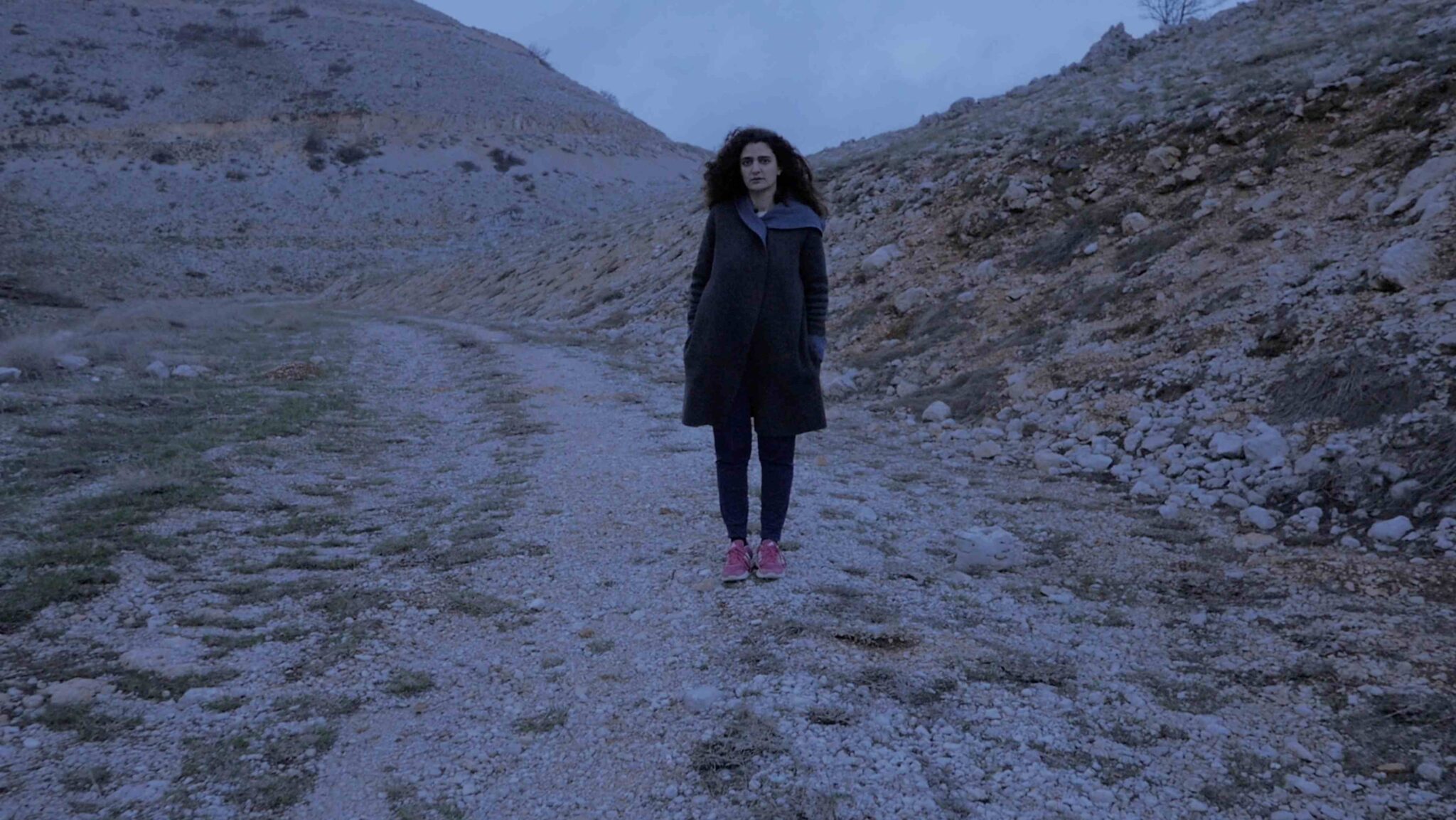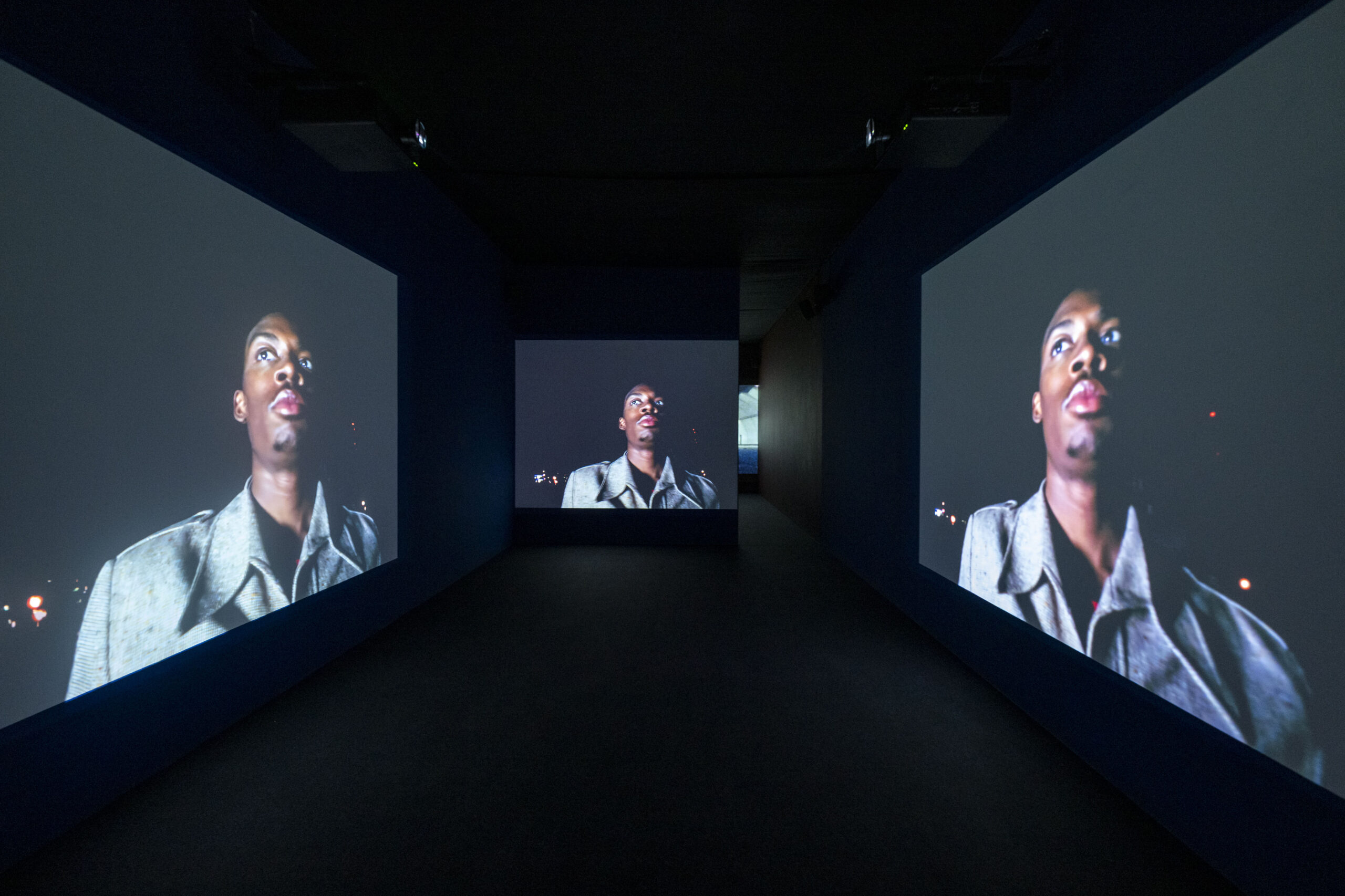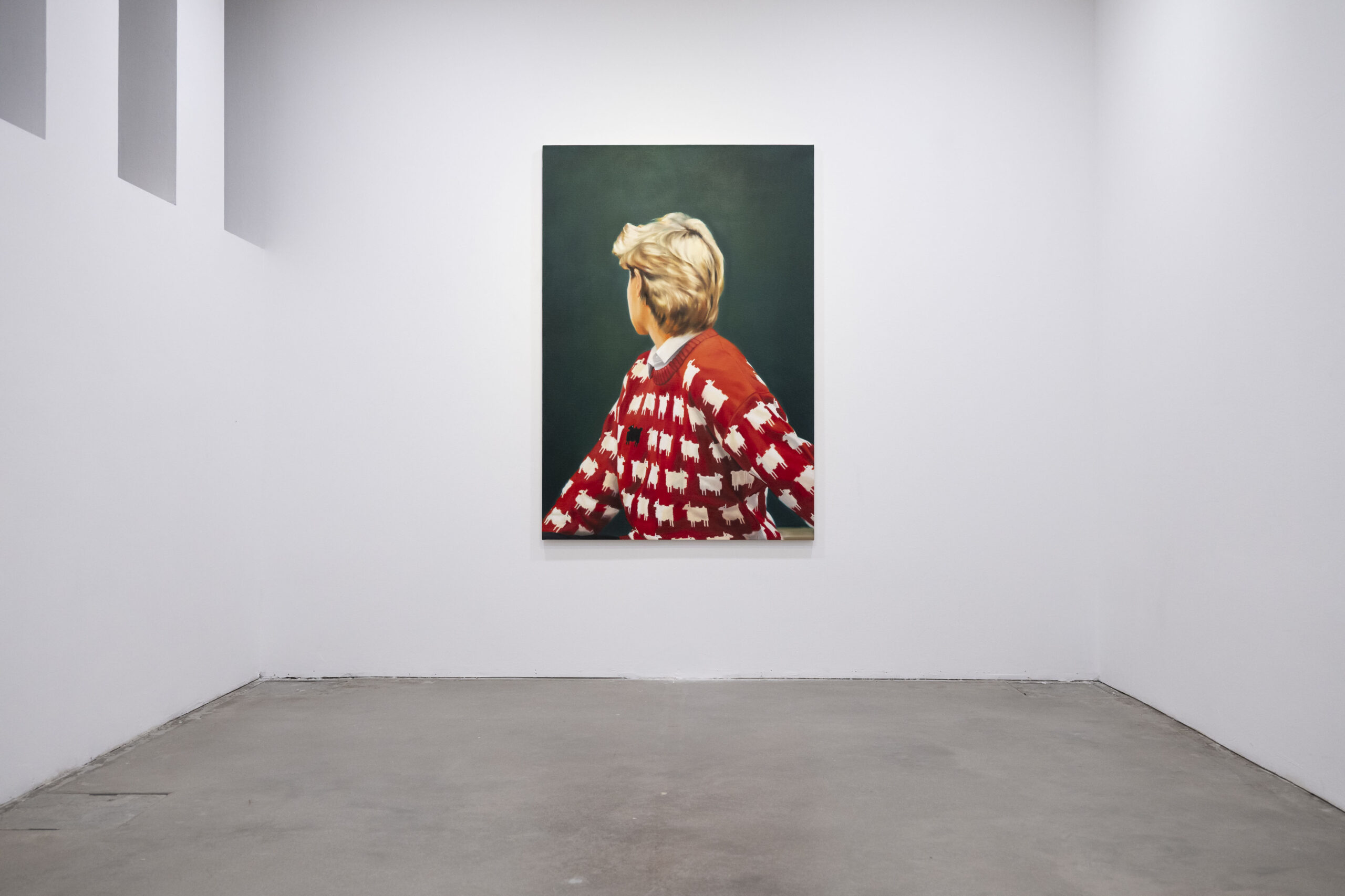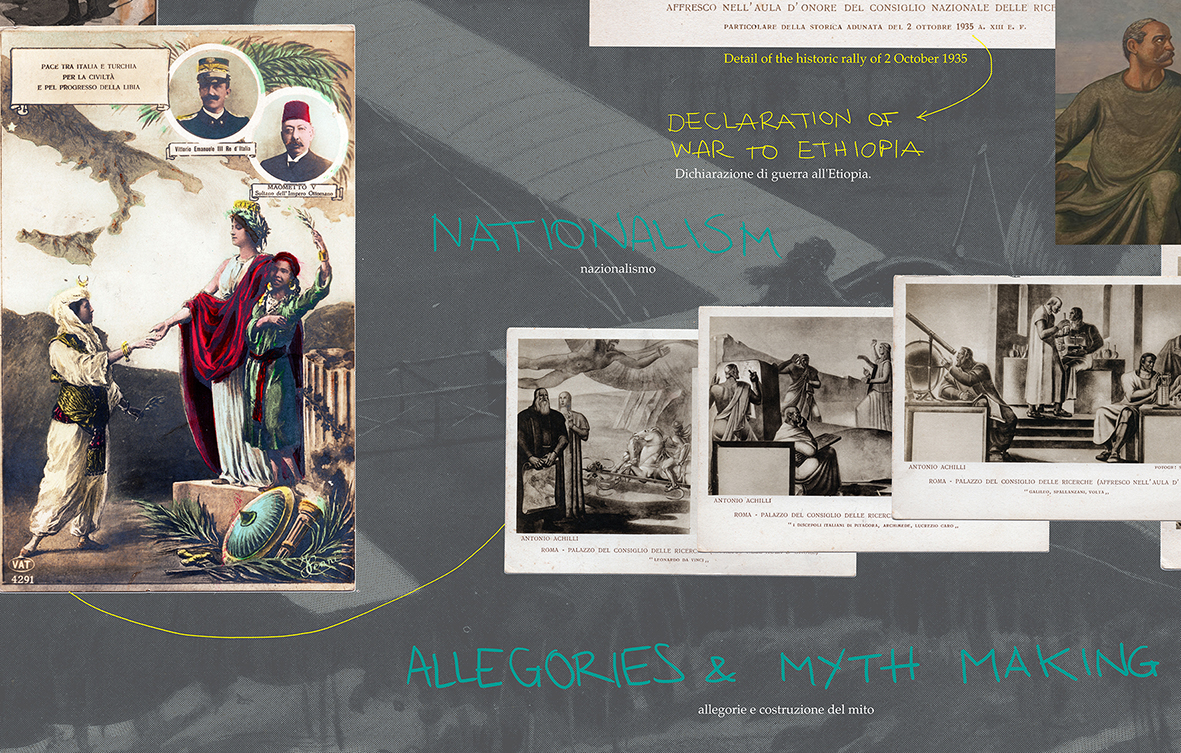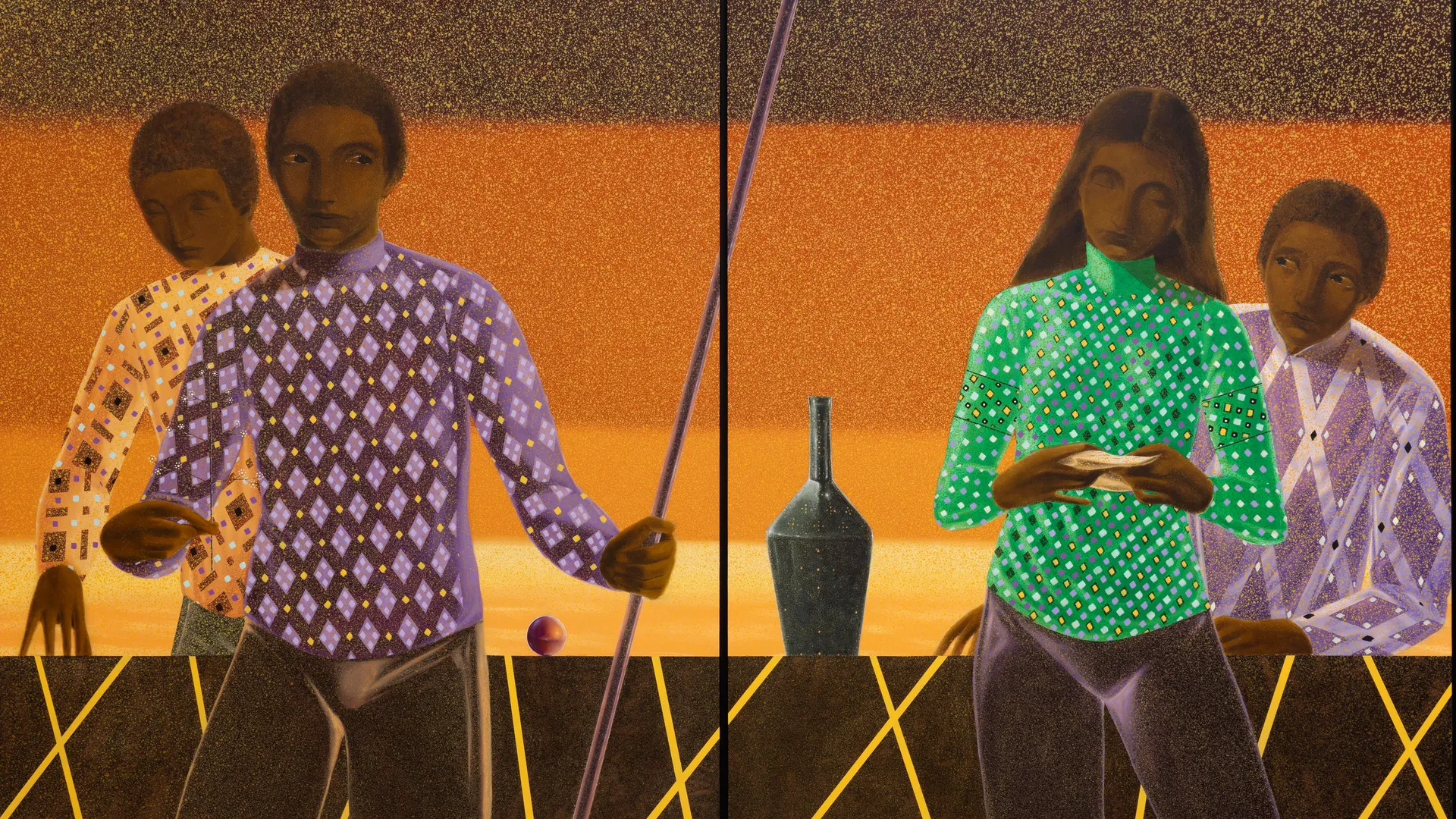Fondazione Sandretto Re Rebaudengo presents The Land Shall Not Be Owned, the first solo exhibition in Italy by Lebanese artist Marwa Arsanios (b. 1978).
At the core of the exhibition is Who is Afraid of Ideology? (2017–ongoing), Arsanios’ long-term project and film series, which investigates land re-appropriation, exploitation, and local reclamation struggles across several geographies in the Middle East and South America. The exhibition marks the international premiere of the fifth and latest chapter—co-produced by Fondazione Sandretto Re Rebaudengo—presented alongside the previous four films. The show unfolds in reverse chronological order, bringing the five video installations into dialogue with drawings, textile sculptures, embroideries, and banners, each emerging from and expanding upon the imaginary of the films.
Who is Afraid of Ideology? is an in-depth and ongoing investigation into the politics of land distribution and extraction, focusing on local struggles for land reclamation in Kurdistan, Iraq, northeastern Syria, Colombia, and Lebanon. Across the five films, Arsanios highlights forms of self-organization and self-defense within female communities, exploring the ways in which they challenge patriarchal structures—whether family, the state, or multinational corporations. The result is a collective portrait and a context-specific yet transnational mapping, where ecological, feminist, indigenous, and decolonial perspectives converge to shape new practices of political autonomy. Beyond the films, the project takes the form of conventions, reading groups, publications, and more, the latest of which was “Usufructuaries of Earth,” a convention co-organized with curator Wietske Maas at BAK (basis voor actuele kunst) in Utrecht.
Through Who is Afraid of Ideology?, Arsanios reconsiders the form and function of film itself. The medium becomes a tool for disseminating knowledge and building an international network of organizations and communities engaged in struggles for social and political change. At the same time, the artist develops technical and narrative strategies to deconstruct the documentary format—historically ethnographic, extractive, and partial—by breaking the conventions of interviews, disconnecting sound from image, and allowing the instructions and dialogues between filmmaker and subjects to be audible.
The series begins with documenting the daily experiences of the Kurdish autonomous women’s movement in the mountainous region of Kurdistan, Iraq (Part 1, 2017), and the ecological women’s village of Jinwar in northeastern Syria (Part 2, 2019); then follows the seed guarding strategies of Pijao indigenous women farmers in Tolima, Colombia (Part 3: Micro Resistencias, 2020); and examines the efforts of an agricultural community in northern Lebanon to prioritize the right to use, or usership, over the right to own land (Part 4: Reverse Shot, 2022).
The latest chapter of Who is Afraid of Ideology?, Part 5: Right of Passage (2025), departs from the legal right of animals to pass across private property, delving into the history of animal movement and animal labor starting from a pre-capitalist moment in Mount Lebanon. The video examines animal settlement and industrial appropriation as the beginning of colonization and the capitalist mode of production, which accompanied the transformation of the region hand in hand. The connection between land appropriation, privatization, and the semi-industrial settlement of animals expands into a more fictional dimension, linking animal passage to the world of dreams and the unconscious. In this dreamlike space, the political animal and the animal seem to meet. Reflecting upon the forms of movement and settlement throughout the film, the video weaves together frame-by-frame 2D animation, staged fiction, and documentary. Arsanios attempts to reimagine the medium of film through a topographical and geological lens, positioning the camera as an animal in passage. The animation is created in collaboration with Vinita Gatne. The series will continue to develop in dialogue with displaced, landless female farmers to explore another dimension of passage, law, land, and movement.
The exhibition will travel to Museum of Contemporary Art of the Basque Country, Artium Museoa, in Vitoria-Gasteiz, Basque Country, opening in November of 2025.
Biografia
Marwa Arsanios (Beirut, 1978)
Marwa Arsanios’ practice tackles structural questions using different devices, forms, and strategies. From the transformation and adaptability of architectural spaces throughout conflict to artist-run spaces and temporary conventions between feminist communes and cooperatives, Arsanios’ practice tends to make space within and parallel to existing art structures, allowing for experimentation with different kinds of politics. For the artist, film—in the way that images refer to one another—becomes another form and space for connecting struggles.
Over the past four years, Arsanios has been invested in these questions from a new and historical materialist perspective through investigating different feminist movements that are struggling for their land. Central to her research are questions of property, law, economy, and ecology tied to specific plots of land—which, along with the people who work them, become the main protagonists of her work. Arsanios’ practice encompasses many disciplines and is deployed in numerous collective methodologies and collaborative projects.
Solo shows of the artist include: BAK Utrecht (2024), Kunsthalle Bratislava (2023), Heidelberger Kunstverein (2023), Mosaic Rooms, London (2022), Contemporary Arts Center, Cincinnati (2021); Skuc Gallery, Ljubljana (2018); Beirut Art Center (2017); Hammer Museum, Los Angeles (2016); Witte de With, Rotterdam (2016); Kunsthalle Lissabon, Lisbon (2015); and Art in General, New York (2015). Her work has also been featured in numerous group exhibitions including: Documenta 15 (2022), Mardin Biennial (2022), Sydney Biennial film program (2022), 3rd Autostrada Biennale, Pristina (2021); 11th Berlin Biennale (2020); The Renaissance Society, Chicago (2020); Gwangju Biennial (2018); Lülea Biennial (2018); Kunsthalle Wien (2019); 1st Sharjah Architecture Triennial (2019); SF MoMA, San Francisco (2019); Warsaw Biennial (2019); 14th Sharjah Biennale (2019); MAXXI Museum, Rome (2017); Ludwig Museum, Cologne (2016); Thessaloniki Biennial (2015); Home Works Forum, Ashkal Alwan, Beirut (2010, 2013, 2015); New Museum, New York (2014); 55th Venice Biennial (2013); M HKA, Antwerp (2013),); and the 12th Istanbul Biennial (2011).
Her films have been screened at MoMA, New York (2023), School of Art Institute, Chicago (Gene Siskel Film Center) (2023), Cinéma du Réel, Paris (2021); Rotterdam Film Festival (2021); Film Fest, Hamburg (2020); FID Marseille (2015, 2019, 2022); TIFF, Toronto (2019); Berwick Film & Media Arts Festival (2019); Walker Art Center, Minneapolis (2017); Centre Georges Pompidou, Paris (2011, 2017, 2022); and Berlin International Film Festival (2010, 2015).
Arsanios was a researcher in the Fine Art Department at the Jan Van Eyck Academie, Maastricht from 2010 to 2012. She completed a PhD at the Akademie der bildenden Künste in Vienna.
